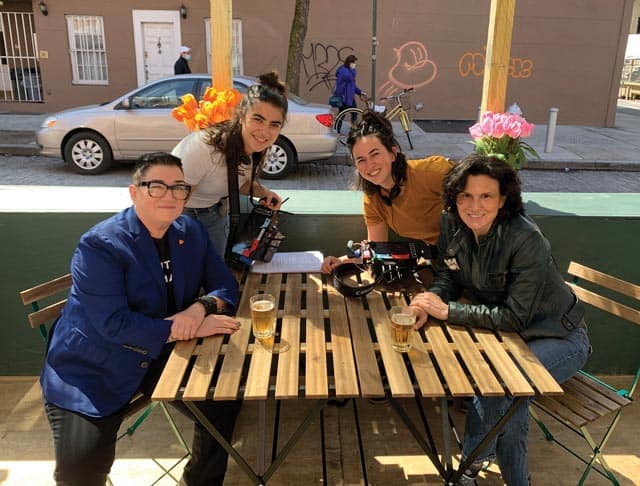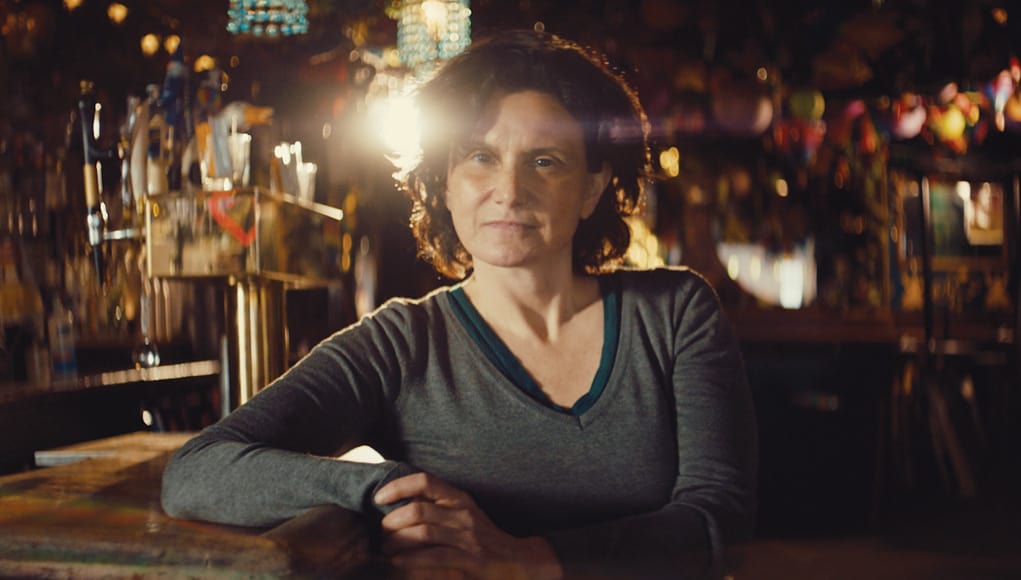The Movement to Save Lesbian Bars
by Steve Desroches
TOP IMAGE: Owner of New York City’s the Cubbyhole Lisa Meninchino
Within LGBTQ+ culture, bars are an integral part of not just fun and recreation, but also politics, community, and even art. After all, the Stonewall Riots, the event that gave birth to the modern LGBTQ+ right movement in 1969, happened at a Greenwich Village gay bar, with said bar becoming a U.S. National Monument with President Barack Obama’s signature in 2016. But aside from major historical events and depictions in media, bars for LGBTQ+ people are intensely personal places for the community, even if upon a surface level inspection they seem like any other bar, just with a queer clientele. Ask any queer person what the first “gay bar” they ever went to was and chances are you’ll get an answer quite quickly, as no one forgets that experience of entering a safe space where you can fully exhale. You could even say that, to some degree, these bars aren’t just safe spaces, but sacred ones.
Over the past decade, conversation within the LGBTQ+ community has shifted to concern that too many of these queer spaces are being lost as gay bars are closing. And the issue is particularly acute with lesbian bars. According to the Lesbian Bar Project, an organization and movement founded to “celebrate, support, and preserve” lesbian bars, in 1980 the United States had an estimated 200 bars for gay women. Pre-pandemic that number dwindled to 21, and at the moment there are just 15 known lesbian bars open in America, with six others still closed since the beginning of the pandemic. That’s a devastating cultural loss. To assist those bars still operating, whose needs only deepened during the Covid-19 pandemic, the Lesbian Bar Project began a fundraising campaign in 2020 to offer financial assistance. And now, a new documentary short of the same name further examines the issue.
Produced and narrated by Provincetown’s own Lea DeLaria and directed by Erica Rose and Elina Street, the Lesbian Bar Project will screen at Waters Edge Cinema this Women’s Week in companion with the full-length documentary Ahead of the Curve, a look at the influential lesbian magazine Curve.

“We wanted to explore the past and the present, and who are the patrons over that time until now,” says Street. “Embracing the language of what they really are is important. They aren’t just bars, it’s also a community center. It’s not just a place to get a drink, it’s so much more.”
Both the film and the movement have a surprisingly optimistic tone considering the dire nature of the loss of lesbian bars. There is an overall examination as to why these bars are closing, and the filmmakers note that it’s multifaceted and complicated. Gentrification in America’s cities and astronomical real-estate prices are certainly part of the problem, as are technological changes that have romance, dating, and sex often shifting to online forms of meeting. There are also generation gaps and cultural changes, as well as an overdue reckoning with a past of racism and transphobia that divided the lesbian community. As noted in the Lesbian Bar Project, up until the 1980s some lesbian bars in New York often had door policies that limited the number of lesbians of color allowed inside at one time. While there may be no consensus as to why lesbian bars are closing, and why that is not happening at the same rate to bars that cater to gay men or are mixed, one thing is generally accepted: if people don’t go out and support these bars, they won’t last.
The film does show a path forward, focusing on New York lesbian bars the Cubbyhole and Henrietta Hudson and Herz in Mobile, Alabama, showing how these businesses are adapting and evolving to be more inclusive, expand on the traditional fare to include different forms of entertainment as well as options for those who do not drink alcohol, and more. Expanding the view of what a lesbian bar is, say these business owners, is tantamount to keeping up with a world that is rapidly changing when it comes to sexuality and gender identity. Using a “stronger together” mantra, the lesbian bar of the future may look very different than a racially segregated and strict binary past, but no less vital or important to LGBTQ+ culture. And as hopefully an end to the pandemic is in sight, Rose and Street see in New York a real renaissance blooming of people eager to assemble again. Videos of cheering crowds at Broadway shows are evidence of that, as is the flow of people, captured in the film, who showed up when the Cubbyhole reopened in April.
“As a culture, I think there is a thirst to move on beyond a virtual existence,” says Rose. “Technology and dating apps are a challenge to bars, but bars aren’t just for hookups and dating. There can be an intergenerational dialogue, queer friendships formed. It’s a place for your gaggle of gays, as we say, to meet. I think that especially after what we went through, are going through, people are really ready to be around people again as virtual life wasn’t anywhere close to gathering together.”
The documentary short Lesbian Bar Project screens prior to the full-length documentary Ahead of the Curve at Waters Edge Cinema, 237 Commercial St., Saturday, October 9, 7 p.m., Monday, October 11, 4 p.m., Tuesday, October 12, 3 p.m., Wednesday, October 13, 2 p.m., Friday, October 15, 2:30 p.m., Saturday, October 16, 4 p.m. and Sunday, October 17, 2 p.m. Tickets ($14/$12 senior/$11 matinee) are available at the box office and online at provincetownfilm.org. For more information call 508.487.3456.
The Known 21 Lesbian Bars Left in America
A League of Her Own – Washington, DC
Alibi’s – Oklahoma City, OK
Babes of Carytown – Richmond, VA
Blush & Blu – Denver, CO
Boycott Bar – Phoenix, AZ
Cubbyhole – New York, NY
Frankie’s – Oklahoma City, OK
Ginger’s – Brooklyn, NY
Gossip Grill – San Diego, CA
Henrietta Hudson – New York, NY
Herz – Mobile, AL
My Sister’s Room MSR – Atlanta, GA
Pearl Bar – Houston, TX
Slammers – Columbus, OH
Sue Ellen’s – Dallas, TX
The Backdoor – Bloomington, IN
The Lipstick Lounge – Nashville, TN
Walker’s Pint – Milwaukee, WI
Wildrose – Seattle, WA
Wildside West – San Francisco, CA
Yellow Brick Road Pub – Tulsa, OK











